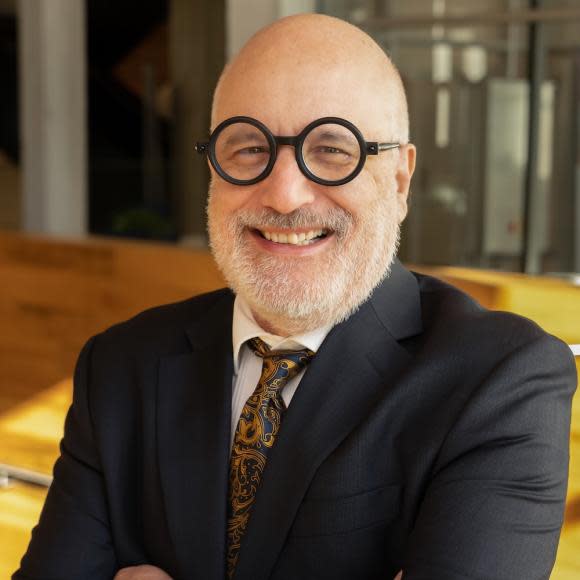Opinion: US Supreme Court affirmative action misses the point on fairness
As expected, the U.S. Supreme Court has ruled that affirmative action policies in universities are unconstitutional. Whatever the legal validity, this decision damages the pursuit of justice by eliminating policies that play a key role in addressing the harms of past wrongs.
Any defensible conception of justice requires actions that rectify the harms of past wrongs. The legacies of slavery, Jim Crow and subsequent discrimination have not disappeared in the last 60 years. Even if direct discrimination miraculously disappeared with the advent of the Civil Rights Act, these terrible injustices have induced substantial racial differences in economic well-being that echo today in employment, education, income, and wealth outcomes, among others. Underlying many of these differences are high levels of neighborhood, school, and occupational segregation across races. Reduced economic well-being for Black parents, in turn, limits the prospects of their children. Our failure to rectify the intergenerational effects of historical injustices denies Black children equality of opportunity.

Affirmative action plays an essential role in overcoming systemic discrimination in American society. We say “systemic” because socioeconomic systems exhibit many feedback effects, so that disadvantage in one generation begets disadvantage in the next. If parents are disadvantaged, their children are more likely to attend lower quality schools, and experience exposure to social ills such as lead contamination and violence. Parental disadvantage becomes likely to be repeated in children, even if the children do not experience direct discrimination per se. We say systemic “discrimination” because previous generations’ disadvantage was induced by historical injustices, hence the disparities faced by Black children of the present day are not systemic and benign: They are systemic and unjust. Without appropriate intervention, this cycle will persist. The failure of a society to implement policies that rectify the effects of past injustices is itself systemic discrimination.
Make no mistake: Affirmative action works. Most obviously, it materially benefits those who receive opportunities because of the policies. Zachary Bleemer of Princeton has documented how affirmative action bans in California had large adverse effects on college quality and ultimately led to worse outcomes in the labor market for many student populations. Beyond the direct effects of these policies, affirmative action helps overcome structural sources of racial gaps. U.S. history has led to invidious negative stereotypes about the abilities of African Americans. How may these be overcome when the stereotypes diminish opportunities to invalidate them? Conrad Miller of UC Berkeley has shown that temporary affirmative action orders for firms with federal contracts led to persistent increases in the share of Black employees after the orders ended, suggesting how affirmative action leads employers to learn. To take another example, social networks are a key mechanism for communicating labor market information. Every act of affirmative action thus overcomes racial differences in the access to information.
More: Unsung Detroit heroes: 2 Martin Luther King Jr. marches possible
More: Opinion: Debate over Pride flag is a test for metro Detroit's Muslim communities
The main ethical objection to affirmative action is that it is inconsistent with meritocracy. This perspective assumes that the benefit of a college education should be a reward for past performance. This is a strange perspective. No one would seriously argue that a firm should hire a worker as a reward for their college transcript; instead, hiring should be based on what the individual can contribute to the firm. College admissions policies should be similarly forward-looking. Students deserve admissions based on the effect of admission on their acquisition of skills and knowledge, their contribution to the learning of their classmates and the institution as a whole, and because of the effects today’s students will have on others during their life courses.
For schools as a whole, the processes of learning and research are social. The diversity of perspectives and experiences matter for both the achievements of students and the research of faculty. Over time, interconnections between individuals, admissions and hiring can have intergenerational social, economic and even life expectancy consequences for individuals and people connected to them. As one generation provides aspirations, role models and networks to the next, affirmative action can lead to equality of opportunity for the next generation of Black children. Whether someone “deserves” an admission or job depends on all of these effects. A prospective notion of meritocracy may in fact require affirmative action.

Another argument against affirmative action is that it penalizes overrepresented students who are not guilty of the discriminatory acts that affirmative action is designed to address. This misunderstands the ethics of affirmative action. Affirmative action represents an acceptance of the moral burdens that define what it is to bethe inheritors of the history of the United States. It is not about individual guilt, but collective responsibility.
In Germany, the efforts to deal with the history and consequences of the Holocaust have a name: Vergangenheitsbewältigung, the work of coping with the past. America needs to view its history in the same light, and there is precedent. African American taxpayers contributed to Japanese American reparations despite not being responsible for the internment camps-in fact they were often denied the right to vote when internment occurred. These contributions of African American taxpayers are just by virtue of all Americans being shareholders of the country’s legacy.
Only a desiccated conception of the equal protection requirement of the law would ban policies that help rectify the consequences of massive violations of that same principle. Instead, affirmative action is part of, as Ralph Ellison wrote, “the enormous task of imposing an ever more humane order upon this bewilderingly diversified and constantly changing society;” and of bending the arc of history towards justice.
Steven Durlauf is a professor at the University of Chicago. David McMillion, a Michigan native, is a professor at Emory University in Atlanta.
This article originally appeared on Detroit Free Press: Opinion: US Supreme Court affirmative action ruling misses fairness

